KENYA
Central Province
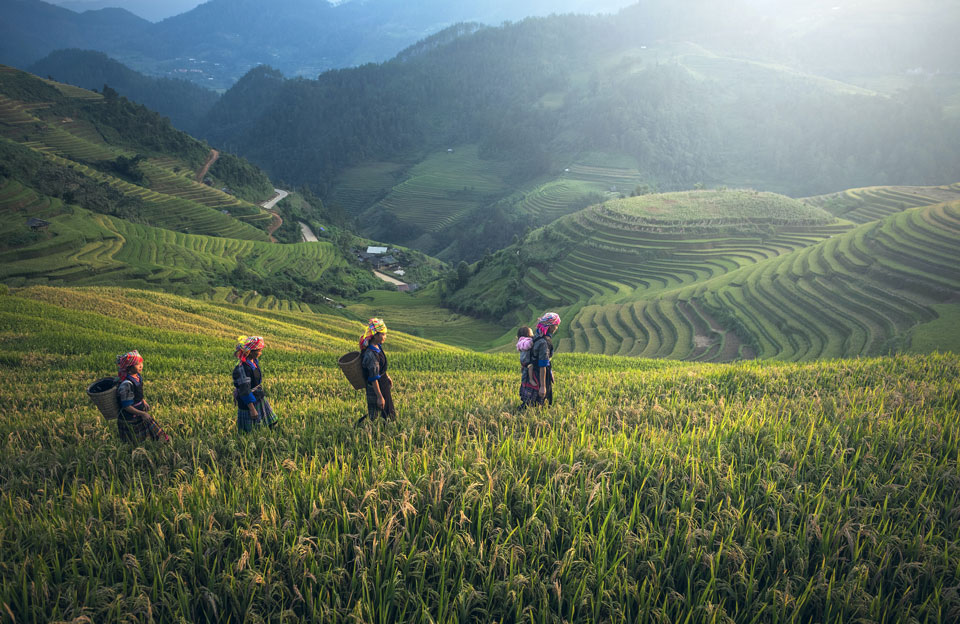
Kenya Central Province AB is a blend of coffee from Nyeri and Kirinyaga regiona (from Central Province), which has a recognizable Kenyan profile.
This blend was created by our partners Dormans Coffee — one of the leading
exporters of green beans in Kenya, which directly cooperates with the
best processing stations and farmers' cooperatives.
Central Province
Central Province is a region in the central part of Kenya. It covers an area of 13.191 km2, located north of Nairobi and west of Mount Kenya (not far from the A2 road line, 42 kilometers northeast of the capital Nairobi).
The climate of the Central Province is cooler than in the rest of the Kenya, because of the higher altitude above sea level. The rains are pretty stable, they fall during seasons: the first — from the beginning of March to May (prolonged rains), and the second — in October and November (short rains).
There are more than 300,000 farmers and about 70 processing stations belonging to farmers' cooperatives in the central province of Kenya.
There are two harvest seasons in Kenya: main and early. The main crop (late crop/main crop) is harvested from November to December, while the early crop (fly
crop) is harvested from May to June each year. Kenya Central Province AB is a blend of coffee from the main crop.
Harvesting, processing and drying of coffee Harvesting is carried out manually, the harvested berries are delivered on the same day to the nearest coffee processing station.
At the processing stations, berries are re—sorted - only ripe berries remain, which are then placed in special fermentation tanks.
The fermentation process is thoroughly controlled. After fermentation, the coffee is washed with water and taken to dry on African beds. During drying, the coffee in
the parchment is constantly turned over, and at noon it is covered with a protective foil.
Then the coffee in the parchment is taken for its further processing (halling) and sorting (grading) to the pre-export preparation station (dry mill).
COSTA RICA
Juan Carlos
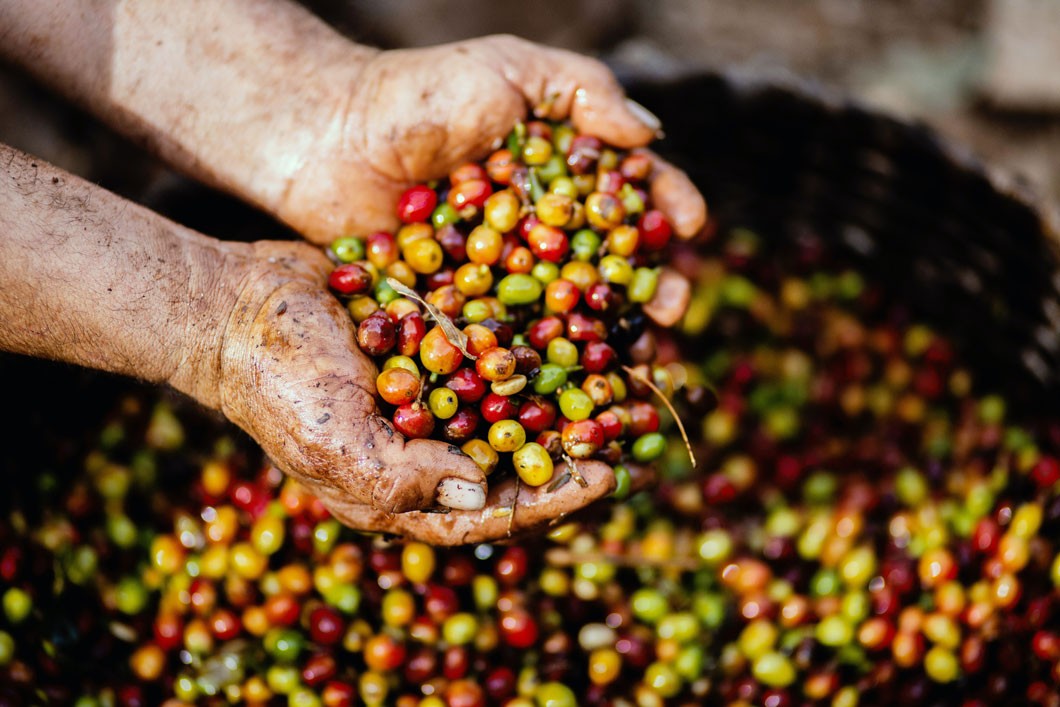
Costa Rica Juan Carlos Valeron
Costa Rica Juan Carlos Valerio Dry
About Coffee
Region: mountain range in San Luis de Grecia
Height of growth: 1450-1550 m
Manufacturer: Juan Carlos Valerio Quesada
Farm area: 49 ha
Varieties grown on the farm: katuai, katurra, villa sarchi, H1
The farm is located in the San Luis Valley, Western Grecia (Western Valley).
Coffee grows on rich volcanic soils. There is an excellent microclimate for coffee cultivation. The Poas volcano is very close, coffee from Juan's farm grows on two slopes, one is looking to the west and the other to the east, and below, along the valley descending to the city of San Jose.
Juan Carlos jokingly calls the most picturesque part of the farm, named after his daughters La Jimena, his office. There are stunning views of the surrounding landscape; it is here that Juan Carlos gets inspired to improve the plantings of Katuai, Caturra and villa sarchi. Juan Carlos was once a lawyer who had no experience in coffee production. In 2010, he decided to take over the management of his father's farm, which has been with his family for 70 years. At that time, the farm was in a neglected state. Its rehabilitation required a pragmatic approach and modern solutions.
Teaming up with Marco Corrales Bolanos, Juan Carlos' right-hand man and farm manager, year after year they have been arranging everything, gradually updating the areas with coffee tree plantings.Now, walking around the farm, you can notice the difference between the updated areas with old areas overgrown with grass and weeds (there are very few of them left) — a clear example of how much progress the partners have made in their business.
Based on the growing demand for the specialty segment, in the future Juan Carlos plans to improve the methods of production and collection of microlots, he also plans to build a small processing station on the territory of his farm.
ETHIOPIA
Bale Mountain
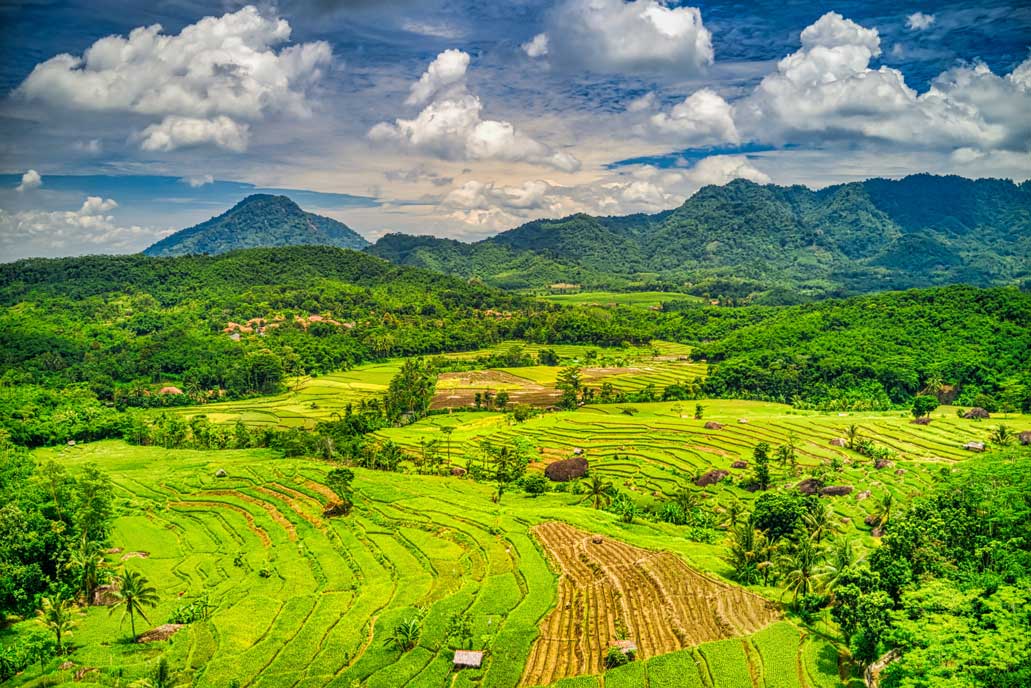
Ethiopia West Arsi Gr.1 Bale Mountain Dry
About Coffee
About coffee
Zone: West Arsi, Nensebo Woreda
Farm: Bale Mountain
Farm area: 150 hectares
Height of growth: 1800-2100 meters above sea level Terroir Surrounded by forests and two rivers, the Bale Mountain Company is located in the zone West Arsi, Nensebo Harm, near the river of the same name and
the Bale National Park. Rare species of animals live in the park: the mountain nyala and the red fox are endemic, they are found only here.
The Bale Mountains belong to the Balearic massif and form the western part of the southeastern highlands of Ethiopia, where the height reaches 3000 meters above sea level. The farm is located a little lower — at an altitude of 1800-2100 meters, although its territory can be traced to the level of 2400 meters, but coffee is no longer grown here, since it is a state-protected area (a project for the conservation of mountain forests).
Image not found or type unknown
The soils here are rich in nutrients due to decomposition products of foliage and plants. There are local varieties of coffee grown on the farm — they are well adapted to the local environmental conditions.
About the farm and the Kerchanshe company.
The Bale Mountain farm is relatively young — it was founded in 2011, belongs to the Kerchanshe company (the company has been exporting African Arabica for more than 15 years).
Bali coffee is considered eco-friendly: it is produced here using methods that do not harm the environment (economical and careful use of resources / sustainability coffee production).
Local farmers receive various support from the Kerchanshe company: free distribution of coffee seedlings (grown in a coffee nursery on the Bale farm), construction of roads and schools, financial support in the off-season.
Natural processing and drying.
Ripe coffee berries are harvested by hand. Next, the coffee is dried on African beds for 18-22 days.
Pre-export preparation is carried out at the Bale farm.
COLOMBIA
La Familia
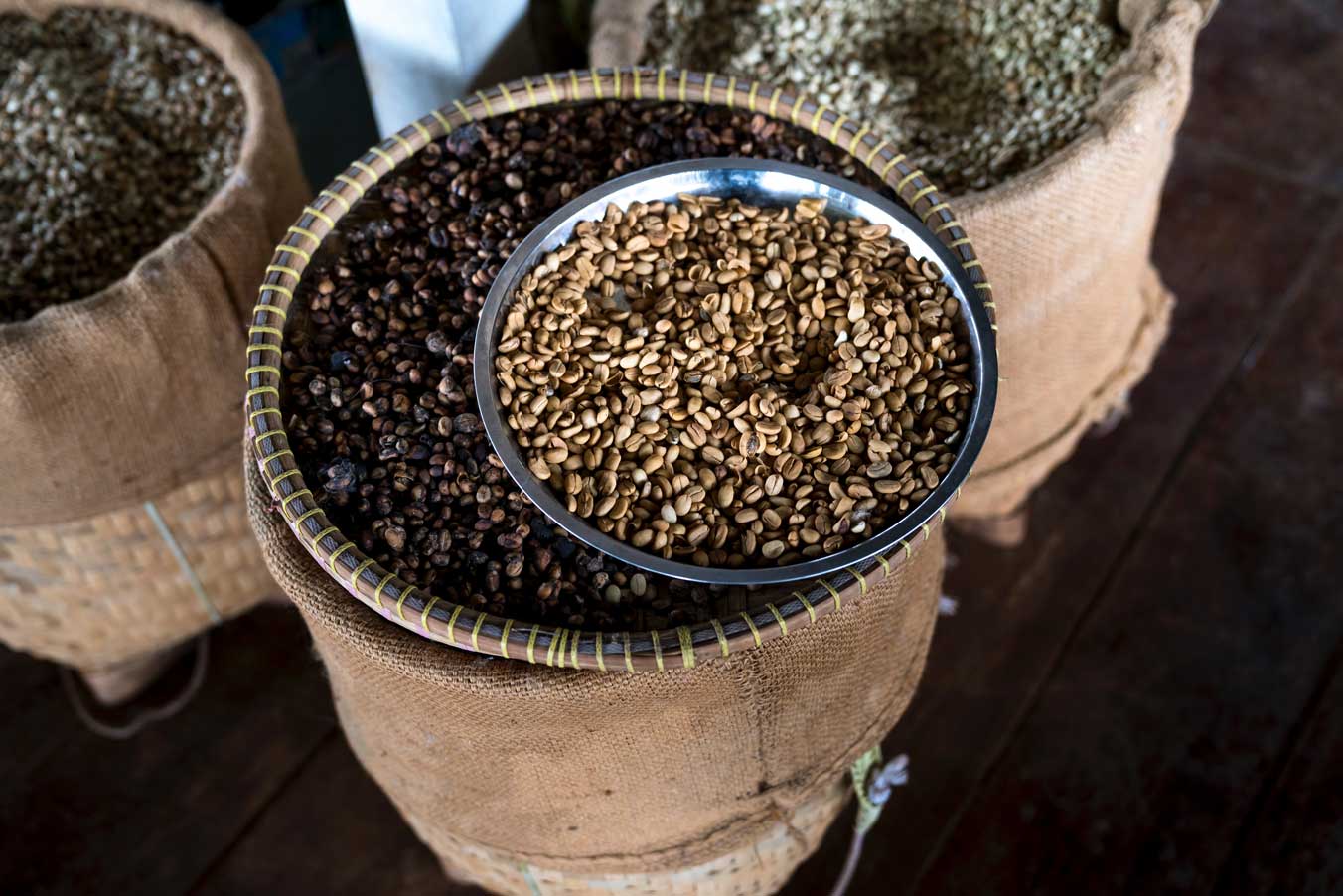
Colombia La Familia dry anaerobic dry
About Coffee
Region: Armenia
Processing station: El Placer Farm
Lot Name: La Familia
This lot of La Familia is a lot of katurra from the region of Armenia, which was processed Sebastian Ramirez at his El Placer farm. El Placer Farm was founded in 1937 and is a traditional
Colombian coffee farm. The owner since 2010 is Sebastian Ramirez, 7 years ago he decided to produce only specialty coffee, starting a large-scale reorganization. The first coffee trees on the farm, varieties tipika and bourbon were planted more than 130 years ago by Sebastian's great-grandfather. Today El Placer is run by Sebastian and his father Ernesto. The Ramirez family he grows geshа, pink and yellow bourbon, as well as caturra and castillo. In addition to the usual processing methods that are used on the farm, Sebastian also works with experimental methods of anaerobic fermentation, which allows him to get clean cups of coffee with a bright fruity and floral aroma, with a good body and a pleasant sweetness. He is very attentive to processing technologies and invests a lot of energy in its constant improvement. However, at this stage, Sebastian is assisted by Q-graders and Q-processing.
Processing and drying
Disk depulpators, concrete tanks
for washed treatment, water recirculators, flushing channels, sewage channels are installed at the processing station.
All the water that is consumed during washing and soaking, then
enters the soil through sewage channels, this allowing to save resources.
1. Rinsing with ozonated water to reduce microbial load.
2. The first phase of fermentation in an aerobic environment lasting 24 hours.
3. The second phase is fermentation in plastic bags with mossto (juice from ripe
coffee berries) for 96 hours at a temperature of up to 40 ° C.
4. Drying on the patio for 18 days.
GUATEMALA
Finca La Bolsa
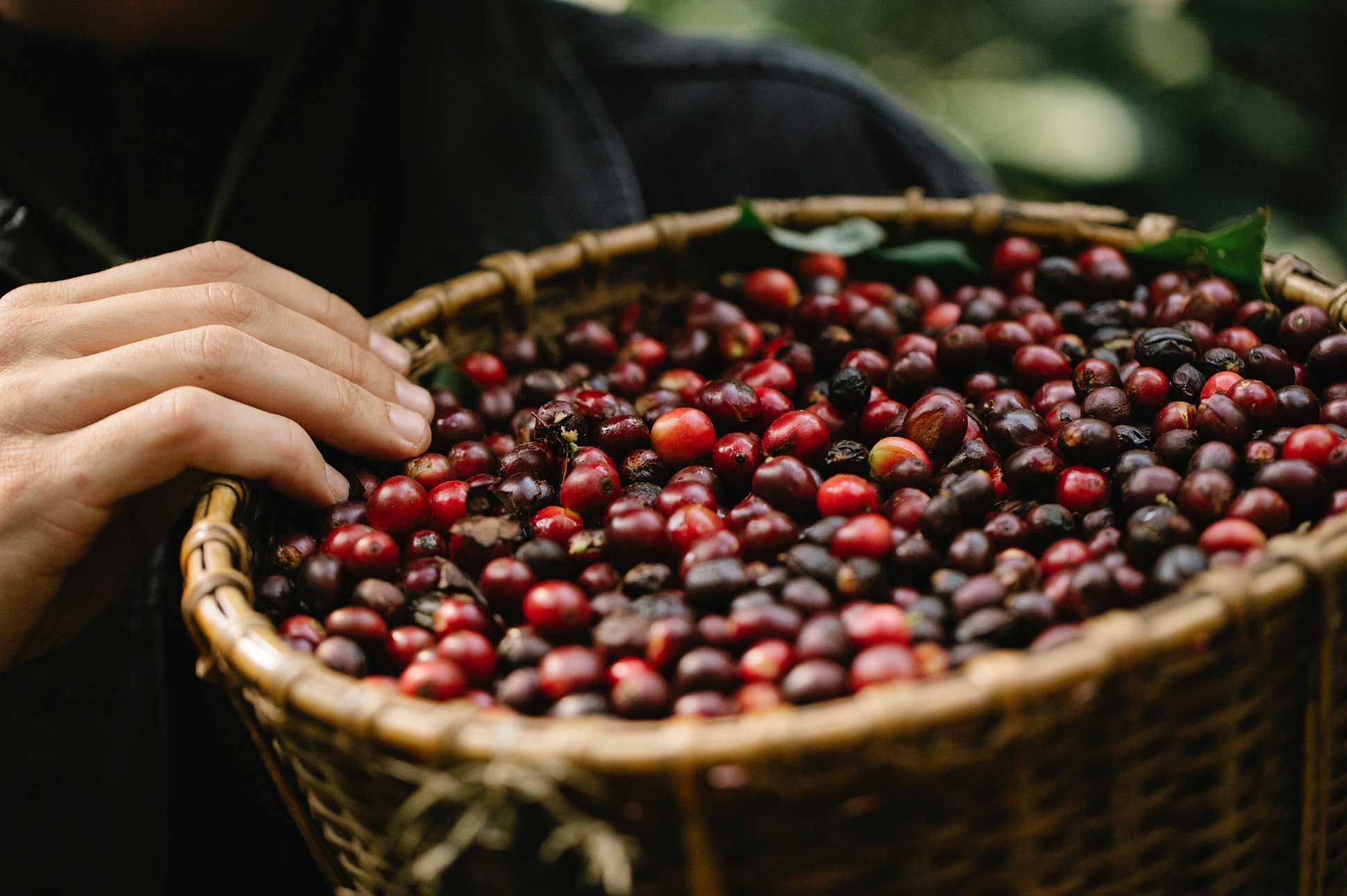
Guatemala SHB Finca La Bolsa Encuentros
About Coffee
Region: Huehuetenango
Farm: La Bolsa
Height: 1400 m
Farm area: 44 hectares
This is a lot of Encuentros of washed processing from La Bolsa farm — one of the farms owned by Vides58, the company of Renardo Ovale Vides, a third-generation coffee producer.
The first La Bolsa farm was founded by Jorge Vide (Renardo's grandfather) in 1958, located in La Libertad, Huehuetenango. Jorge Vides bought this land, which was then covered with forests, and began growing coffee varieties of bourbon and caturra.
At the same time, Jorge Vides worked as a full-time doctor, people from different regions of the country came to him for treatment, he loved his job, but the coffee business was his real hobby.
For his hard work and merits, Jorge was appointed director of the National Hospital Huehuetenango, which is still named after him.
In 1980, Jorge founded a school for local families on the territory of Finca, which is also named after him. The school is still operating and authorized by the Ministry of Education.
When Jorge passed away, Renardo's grandmother, mother and aunt continued to run the coffee plantation.
In 2002, when the farm was already managed by Renardo, the coffee from this farm took second place in the first Cup of Excellence competition for the best coffee from all over the country, and this changed the whole approach of working with coffee. Renardo realized that coffee can be sold directly to roasters and importers, they are ready to pay more for quality and delicious coffee. Since then, the main goal has been the introduction of new practices in the work
of the farm, quality improvement and training. Jacqueline Sabina Morales de Ovalle, Renardo's wife works in the company as the head of the quality control department.
In 2012, a project aimed at reducing child labor and improving the lives of workers through kindergartens and
seminars for children was launched at La Bolsa Farm. Renardo dreams of benefiting the community, just like his grandfather, and is looking for new ways to do this through coffee production. The farms
preserve the ecosystem of wildlife and use water sparingly.
ETHIOPIA
Guji Anasora
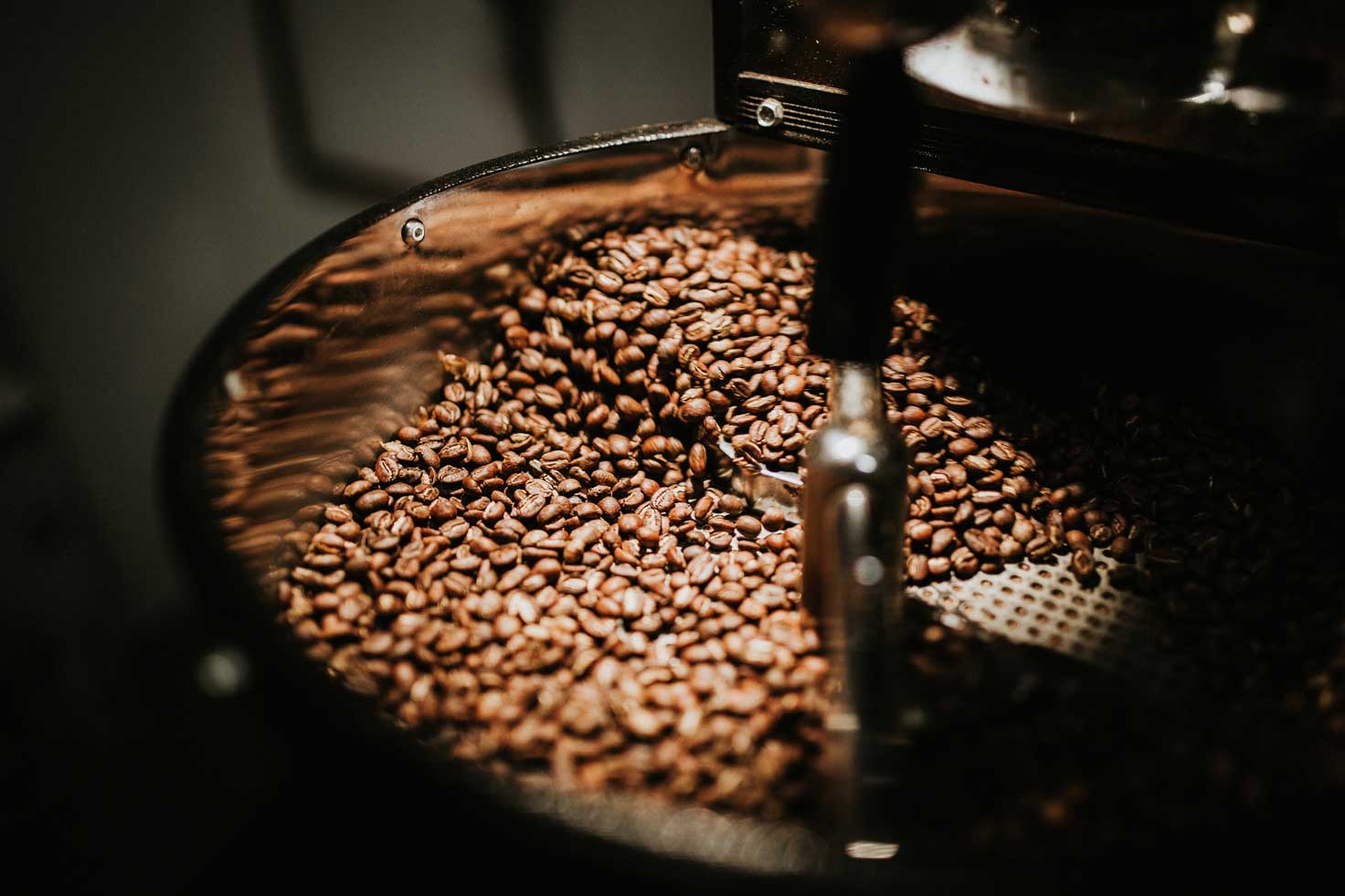
Ethiopia Guji Gr.1 Anasora washed
About Coffee
Region: Guji Zone, Oromia
Variety: Ethiopian Heritage (heirloom)
Growing height: 2300 meters above sea level
Manufacturer: Israel Degfa
Farm: Anasora (private farm)
Precipitation: 1200-1400 mm per year
Soil: red (glandular) soil
This coffee is produced at Israel Degfa's private farm in Anasor. The farm is easily accessible by car, it is the closest to the Adola washing processing station. Israel also owns 26 stations in the south and southwest of Ethiopia.
Israel's processing stations are united not only by their convenient location (proximity to cities, heights), but also by the fact that Israel invests funds and resources in their development, improving the quality of produced coffee.
A large team works at the processing stations, which sorts coffee by quality, and also selects defects.
Flotators are also installed at the stations (allowing you to separate more ripe coffee berries from less ripe ones).
Israel Degfa has improved the traceability of the coffee he produces (for export). All coffee produced is divided by days and harvest areas, as well as by the method of coffee processing. Coffee is stored in a warehouse located at the processing station. Before sending to Addis, a sample of coffee is being tested at a local ECX laboratory, then he
a grade is awarded (Q 1, etc.). The process of washed processing. The station workers pre-sort by hand the entire
batch of coffee that has arrived to them (coffee berries). Before depulpation and fermentation by flotators , coffee berries have a density of grade 1 and Grade 2 quality, then (with grade 2) the procedure is repeated.
Depulpator: traditional disk
Fermentation: 24-72 hours
Flushing with water in the channels: yes
Soaking: about 6 hours in clean water
Drying: 9-12 days
The parchment is dried in the sun for 9-12 days, depending on weather conditions, on African beds.
To obtain high-quality coffee during drying, the parchment is moved
manually (defects are removed), at noon and at night the parchment is covered with a film.

